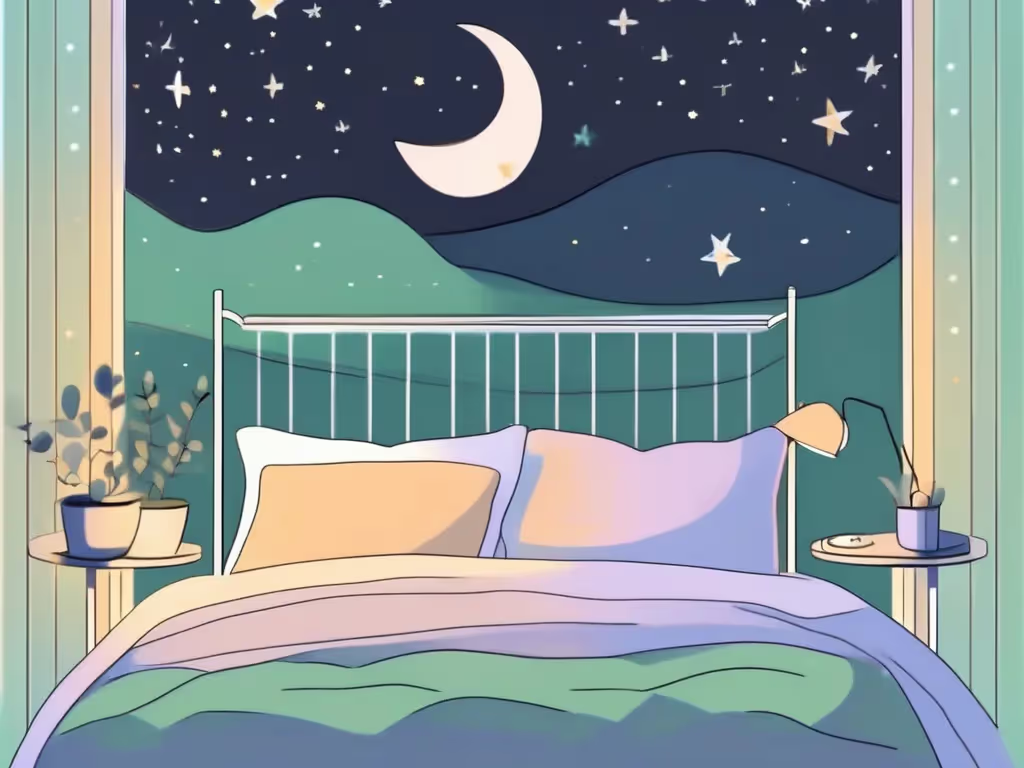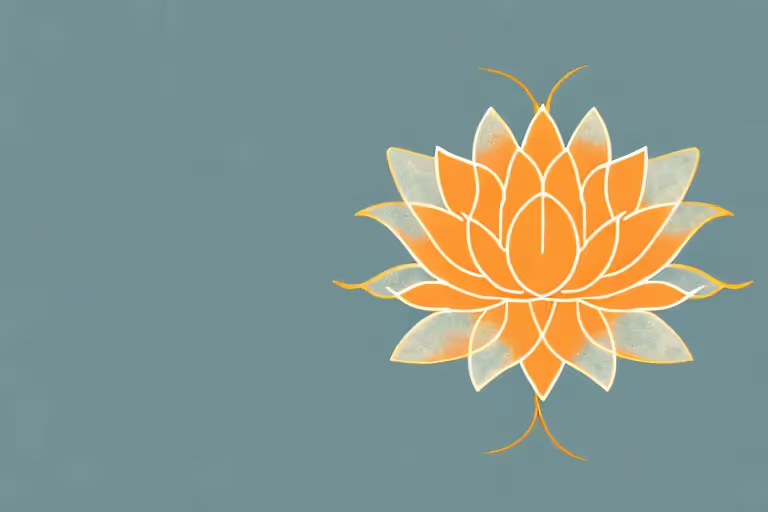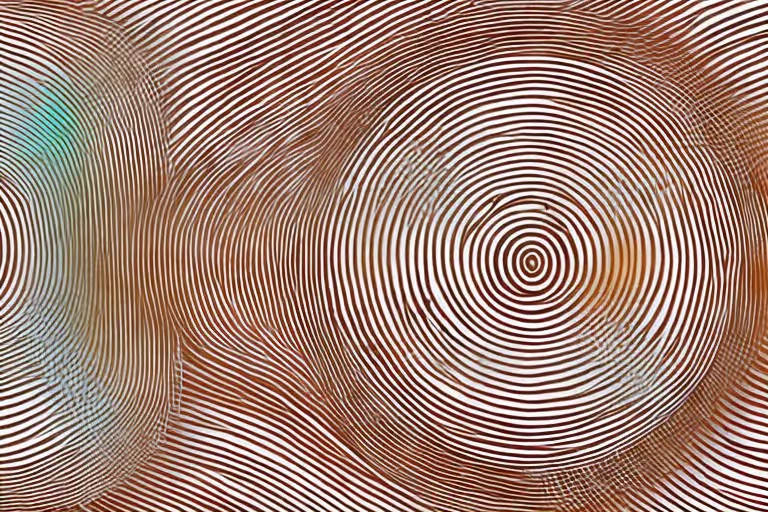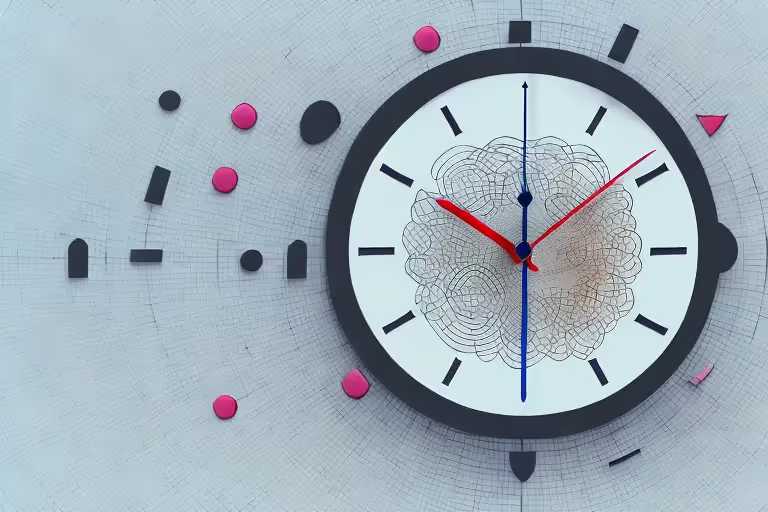Getting a good night's sleep is essential for our overall well-being. However, some of us have become dependent on certain sleep aids, such as a fan, to help us drift off into dreamland. If you're wondering how you can fall asleep without a fan, this article will explore alternative methods and provide helpful tips to create an ideal sleep environment.
Understanding the Science of Sleep
Sleep is a complex process that plays a vital role in our physical and mental health. It is not merely a state of unconsciousness, but rather a dynamic and intricate series of events that occur within our bodies. To truly grasp the art of falling asleep without a fan, it is essential to delve into the fascinating science behind sleep.
One of the key factors that contribute to the phenomenon of sleep is the intricate interplay between our brain and body. During sleep, our brain undergoes various stages, each with its unique characteristics. These stages include non-rapid eye movement (NREM) sleep and rapid eye movement (REM) sleep. NREM sleep is further divided into four stages, each with distinct brainwave patterns and physiological changes.
As we explore the science of sleep, it is crucial to acknowledge the role of white noise in facilitating a peaceful slumber. White noise, such as the gentle hum of a fan, creates a consistent background sound that masks any sudden noises, allowing us to relax and drift off into dreamland. The soothing nature of white noise has been found to have a calming effect on our nervous system, promoting a sense of tranquility and aiding in the initiation of sleep.
The Role of White Noise in Sleep
White noise has been a popular sleep aid for many individuals seeking a peaceful night's rest. Its ability to drown out external disturbances and create a cocoon of tranquility is truly remarkable. However, it is essential to recognize that relying solely on white noise can hinder our ability to sleep soundly without a fan in the long run.
While white noise can be an effective short-term solution, it is crucial to address the underlying factors that may be contributing to sleep disturbances. By identifying and addressing these factors, we can develop healthier and more sustainable sleep habits.
Furthermore, it is important to note that our bodies have a remarkable ability to adapt. Over time, relying solely on white noise may lead to a dependency, making it challenging to fall asleep without its presence. By gradually weaning ourselves off the reliance on white noise, we can train our bodies to embrace the natural soundscape of our environment, ultimately fostering a more resilient and independent sleep routine.
Find Peace and Sleep Restfully with the Aura Meditation and Sleep Stories App
Try it Free!
The Impact of Environment on Sleep Quality
Our sleep environment significantly affects the quality of our sleep. Factors such as room temperature, lighting conditions, and the overall ambiance can either promote or hinder our ability to fall asleep quickly and stay asleep throughout the night.
Research has shown that a cool and comfortable room temperature is conducive to a good night's sleep. The ideal temperature for most individuals falls between 60 and 67 degrees Fahrenheit (15 to 19 degrees Celsius). This range allows our bodies to cool down, as our core temperature naturally drops during sleep, promoting a more restful and undisturbed slumber.
Additionally, the presence of light or darkness in our sleep environment plays a crucial role in regulating our sleep-wake cycle. Exposure to bright light, especially blue light emitted by electronic devices, can suppress the production of melatonin, a hormone that helps regulate sleep. Creating a dark and soothing sleep environment, free from the intrusion of artificial light sources, can enhance our body's natural melatonin production and promote a more restorative sleep experience.
Furthermore, the overall ambiance and comfort of our sleep environment can greatly impact our ability to relax and fall asleep. Factors such as the quality of our mattress, the softness of our pillows, and the absence of clutter can contribute to a sense of calm and tranquility, facilitating the transition into a peaceful slumber.
Understanding the science behind sleep and the various factors that influence our ability to fall asleep without a fan is key to developing healthy sleep habits. By recognizing the role of white noise and the impact of our sleep environment, we can make informed choices and create a conducive atmosphere for a restful and rejuvenating night's sleep.
Exploring the Dependence on Fans for Sleep
Psychological and physical factors contribute to our reliance on fans for sleep. Understanding these factors can help us explore alternative methods to fall asleep and gradually reduce our dependence on fans.
Sleep is a vital component of our overall well-being, and finding the right conditions to facilitate a restful night's sleep is crucial. Many individuals have developed a strong attachment to certain sleep aids, such as fans, due to the association they have formed between the sound and comfort it provides. The gentle hum and the cooling breeze create a sense of tranquility that lulls them into a peaceful slumber.
However, it is important to recognize that relying solely on fans for sleep may have its drawbacks. While they can create a soothing sleep environment, it is essential to find healthier ways to promote relaxation and optimize sleep quality in the long run.
Psychological Factors Behind Fan Dependence
Emotional attachment to certain sleep aids, like a fan, can arise from the association we've developed between the sound and comfort it provides. The white noise produced by fans can help drown out background noises, creating a cocoon of tranquility that allows us to drift off into dreamland. This psychological conditioning can make it challenging to fall asleep without the familiar hum of a fan.
However, relying solely on fans for sleep can limit our ability to adapt to different sleep environments. It is important to explore alternative methods that promote relaxation and improve sleep quality without the need for a fan. This can involve creating a soothing bedtime routine, such as practicing mindfulness or engaging in relaxation techniques like deep breathing exercises or meditation.
By gradually reducing our dependence on fans, we can train our minds to associate sleep with a broader range of stimuli, allowing for more flexibility in our sleep routines.
Physical Factors Influencing Fan Dependence
In addition to psychological factors, our bodies can become physically conditioned to certain stimuli, such as the gentle breeze generated by a fan. The consistent airflow can create a cooling effect that helps regulate body temperature, making it easier to fall asleep and stay asleep throughout the night.
However, this physical conditioning can also contribute to our reliance on fans for sleep. If we become accustomed to the presence of a fan, our bodies may struggle to adjust to different sleep environments that do not offer the same level of airflow. This can lead to difficulties falling asleep or disrupted sleep patterns.
It is important to find alternative methods that promote relaxation and optimize sleep quality, regardless of the presence of a fan. This can involve adjusting the temperature in your bedroom, using breathable bedding materials, or incorporating other sleep aids like aromatherapy or weighted blankets.
By gradually reducing our dependence on fans, we can train our bodies to adapt to different sleep environments and improve our overall sleep quality.
Alternative Methods to Fall Asleep
If you're looking to transition away from using a fan, there are various alternative methods that can help you fall asleep naturally and peacefully.
When it comes to finding alternative methods to fall asleep, one option to consider is utilizing sound machines. These devices are designed to provide a soothing and consistent background noise that mimics the gentle hum of a fan. By creating a calming atmosphere, sound machines can help you relax and drift off into a peaceful slumber. There are a wide variety of sounds to choose from, ranging from ocean waves to raindrops. Experimenting with different sounds can help you find the one that works best for you.
In addition to sound machines, another powerful tool to aid in falling asleep naturally is meditation and relaxation techniques. Engaging in mindfulness meditation or relaxation exercises before bedtime can help calm the mind and prepare it for sleep. One technique to try is deep breathing exercises, which involve taking slow, deep breaths to relax the body and mind. Another effective method is progressive muscle relaxation, where you systematically tense and relax different muscle groups to release tension and promote relaxation. Additionally, guided meditations can provide a soothing and guided experience to help you unwind and let go of any racing thoughts.
By incorporating these alternative methods into your bedtime routine, you can create a peaceful environment that promotes relaxation and better sleep. Whether you choose to use a sound machine or practice meditation and relaxation techniques, finding what works best for you is key. Remember, the goal is to find a method that helps you naturally fall asleep and wake up feeling refreshed and rejuvenated.
Creating an Ideal Sleep Environment
Achieving an ideal sleep environment is crucial for promoting quality sleep. Paying attention to factors such as room temperature and light exposure can significantly impact your ability to fall asleep and stay asleep throughout the night.
The Importance of Room Temperature
Keeping your bedroom at a cool yet comfortable temperature can help signal your body that it's time to sleep. Find the temperature that works best for you and adjust your thermostat accordingly or use bedding materials that regulate body temperature.
Research has shown that a slightly cooler room temperature, around 65 degrees Fahrenheit (18 degrees Celsius), is optimal for most people to achieve a restful sleep. This temperature helps to lower your core body temperature, which is a natural signal for your body to prepare for sleep. Investing in a programmable thermostat can make it easier to maintain a consistent temperature throughout the night, ensuring that you stay comfortable and undisturbed.
The Effect of Light and Darkness on Sleep
Expose yourself to natural light during the day and minimize exposure to bright lights, including electronic screens, in the evening. Create a dim and dark environment in your bedroom to promote melatonin production, the hormone that regulates sleep-wake cycles.
Natural light exposure during the day helps to regulate your body's internal clock, also known as the circadian rhythm. This clock influences various biological processes, including sleep and wakefulness. Spending time outdoors or near windows during daylight hours can help synchronize your circadian rhythm and promote better sleep at night.
In the evening, it's important to limit your exposure to bright lights, especially those emitted by electronic devices such as smartphones, tablets, and laptops. These devices emit blue light, which can suppress the production of melatonin and interfere with your ability to fall asleep. Consider using dimmer switches or installing blackout curtains in your bedroom to create a dark and tranquil environment that promotes melatonin production.
Additionally, incorporating relaxation techniques such as reading a book or taking a warm bath before bed can help signal to your body that it's time to wind down and prepare for sleep. By creating a sleep-friendly environment, you can optimize your chances of enjoying a restful and rejuvenating night's sleep.
Tips for Transitioning Away from Fan Use
Breaking habits can be challenging, but with a gradual reduction strategy and coping techniques, you can successfully transition away from using a fan for sleep.
Many people find comfort in the gentle hum of a fan as they drift off to sleep. The cool breeze and white noise can create a soothing environment that promotes relaxation and restfulness. However, relying too heavily on a fan for sleep can lead to dependence and potential sleep disruptions when the fan is not available.
Gradual Reduction Strategy
If you're heavily dependent on a fan for sleep, try reducing its use gradually over time. Start by using the fan on a lower setting or for a shorter duration each night until you no longer rely on it.
During this transition period, it can be helpful to explore other methods of creating a comfortable sleep environment. Experiment with different bedding materials, such as breathable cotton sheets or temperature-regulating mattress toppers, to find what works best for you. Additionally, adjusting the thermostat or using a portable air conditioner can help maintain a cool temperature in your bedroom without the need for a fan.
Coping with Potential Sleep Disruptions
Transitioning away from a fan may result in temporary sleep disruptions. The absence of the familiar white noise and gentle breeze can make it difficult to fall asleep or stay asleep throughout the night. However, implementing relaxation techniques or utilizing alternative methods, such as a sound machine, can help smooth the transition and ensure restful sleep.
Consider incorporating calming activities into your bedtime routine to promote relaxation. This could include practicing deep breathing exercises, listening to soothing music, or engaging in a mindfulness meditation. These techniques can help quiet the mind and prepare your body for a restful night's sleep, even without the presence of a fan.
On the other hand, change can be challenging, but with determination and exploring alternative methods, you can learn to fall asleep without a fan. Remember, creating an ideal sleep environment and prioritizing relaxation techniques are key components of a good night's rest.
For those seeking additional support and guidance, the Aura Health app offers a range of features to help you on your sleep journey. Whether it's through soothing sleep stories, relaxing meditations, or expert advice, the app can assist you in achieving a more restful sleep without relying on a fan.
Remember, transitioning away from a fan for sleep may take time and patience. Be kind to yourself throughout the process and celebrate each small step towards a healthier sleep routine. With perseverance and the right tools, you can successfully break free from fan dependence and enjoy restful nights of sleep.
Aura is Your All In One App for Meditation, Mindfulness Wellbeing
Find peace every day with one app for your whole well-being. There is no one-size-fits-all solution to mental well-being. Aura is the first all-in-one wellness app that learns how to best help you. Discover an endless library of expert-created tracks for your well-being, all taught by the world’s best coaches, therapists, and storytellers. With Aura's personalized recommendations, you can find peace every morning, day and night.



.webp)






.avif)

%20(1).avif)


.avif)
.avif)
.webp)


.avif)


















































































































.avif)

















.svg)




.avif)




